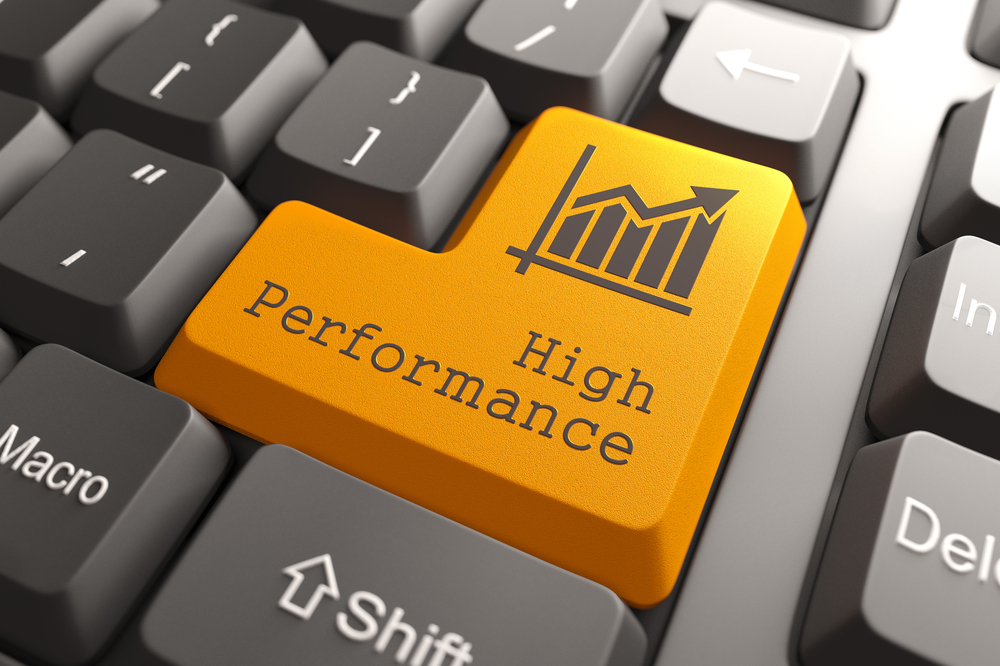Podcasts
Podcast.
Learn about how to infuse Podcasts into your strategy at HubSpot Podcasting. Download "How to Start a Podcast for Your Business".
AI Bill of Rights, Part 1: Safe and Effective Systems
"The government has proposed an AI Bill of Rights that outlines five fundamental rights that individuals should have when subjected to the outputs of AI systems. The first right is the right to safe and effective systems, which means that individuals should be protected from unsafe or ineffective systems. Automated systems should be developed with consultation from diverse community stakeholders and domain experts to identify concerns, risks and potential impacts of the system."
AI Bill of Rights, Part 1: Safe and Effective Systems
Understanding Quantum Computing with Peter Shor and Will Oliver
How Retail Is Using AI To Prevent Fraud
"Retailers face an evolving landscape of fraud tactics each day. It’s why companies are increasingly turning to AI to try and catch threat patterns never seen before, and block attacks before they happen. While this approach lends itself to efficiency, it’s also one that relies on increasingly complex data profiles of consumers."
How Retail Is Using AI To Prevent Fraud
Could New Storage Techniques Preserve the World’s Plethora of Data?
FULL TRANSCRIPT
All right, coming up, hard disc drives are reaching their physical limits to hold all the data we want to store. So what's the future of data storage? Compared with storing records in an old filing cabinet, digital storage can feel unlimited. And storing your favorite pictures in the cloud feels more durable than putting them in a photo album. But the hard drives behind digital storage can break. They can experience mechanical failure or their formats could become obsolete. They can be harmed by dust or heat or even something computer scientists call bit rot. But the speed at which we're digitizing all sorts of information isn't slowing down. So how can the world keep up? Joining us to discuss that is Dr. Brian Michael Murphy. He's the Dean of the College at Beddington College. He wrote about this issue for The Wall Street Journal and in his new book, We the Dead: Preserving Data at the End of the World. Hi Brian, thanks for being here.
Dr. Brian Michael Murphy: Thanks for having me.
Zoe Thomas: So let's start with some background. Can you lay out kind of how a hard drive works, what's going on inside them?
Dr. Brian Michael Murphy: Dr. Brian Michael Murphy: Yeah. So on a hard disc drive, one of the things that's happening is there is a platter where the data is stored and that platter is spinning very, very, very quickly. And it spins quickly when you write data to it. And it spins very quickly anytime you want to access that data and the data's going to be read, and then it pops up magically on your computer screen. But mechanically, or I should say, physically what's happening is at a microscopic level, there are little tiny bits of material that the platter is made of, and those little bits, each one of them holds a little tiny piece of information, that's either positive or negative. So if you've seen the matrix and you've seen all the ones and zeros going up and down the wall, that's referring to how the computer reads those magnetic charges. And so that's how it's made. And so it has to spin very quickly and it has to spin very, very smoothly for the whole process to work.
Zoe Thomas: I mean, that sounds simple enough, but there can be these big problems that run through it, right? I mean, talk us through what some of those are.
Dr. Brian Michael Murphy: Yeah. Some of the problems occur if there's any kind of mechanical failure that goes on with the mechanical parts of the disc. So there are ball bearings in there, those have to be lubricated. There's a read/write head that can malfunction. If there's any dust like if there was a problem in manufacturing, the disc and there's dust inside and it gets in those components, it can completely ruin everything. Other challenges are the things that have always plagued media going back to ancient times, right? Heat, even a microscopic form of decay called bit rot. We think that like, oh, paper decays, or even film decays, but even metal decays after a long enough time, or it can even destabilize a bit to where it loses magnetic charge, on that point you've lost the data.
Zoe Thomas: What efforts are being made to address those problems?
Dr. Brian Michael Murphy: Well, what has driven a lot of the changes in this technology over time is the desire to store more and more data on smaller and smaller spaces. So new data centers are being built all the time. But the problem is the form factor of hard drives and actually the casing in which they're stored in data centers that doesn't really change. There's not much flexibility around that. So you've got to figure out ways to increase what's called the aerial density of the hard drive, storing more in the same amount of space. For the past few decades, we've done a very good job of increasing the aerial density of hard disc drives. But those little segments that the platter is divided into those bits that I mentioned before they get charged either positive or negative, they're becoming so small that they're unstable to where if there's any temperature fluctuation, the particle can misbehave and actually flip it's charged from negative, positive or positive negative. And that's disastrous for a hard drive because that means that whatever data you wrote into that charge is now lost. So what's happening is they're figuring out ways to create platters out of harder material, but that means you need more energy to actually write the data. So they have lasers or microwave-assisted recording technology. But the main problem is that you can only go so small with those bits and increase the aerial density so far. We've kind of reached that point. So the creativity is still there, but it's really, really hard to innovate beyond that.
Zoe Thomas: So how do they get around this hurdle? I mean, are we just up against a wall and we're going to have to start, I don't know, bringing out our filing cabinets and our cellophane photo albums again?
Dr. Brian Michael Murphy: Well, I'd be all for that because I love filing cabinets and cellophane photo albums, but that's more personal preference. I think what's happening is there are a lot of scientists who are trying to think beyond the hard drive and the next frontier is really DNA data storage. So scientists have figured out how to store the binary code, the ones, and zeros in the proteins of DNA. And that is the most dense data storage material that we know of. A few years ago when a lot of writing was coming out about some of the breakthroughs that happened at Harvard and the University of Washington and Microsoft, they said that the entire internet could be stored in an amount of DNA that would fit inside a shoebox. And of course, DNAs can be dehydrated or frozen, so it could last for billions of years if you're concerned about permanence.
Zoe Thomas: I got to jump in here, just DNA, it makes people think what you're storing this in me, in a human, what kind of DNA are we talking about here?
Dr. Brian Michael Murphy: So up to this point, as far as we know, scientists have created synthetic DNA chains in which they have stored data. It can be any kind of data, just like a computer, you can store something that's text-based or image or video, you can do that in DNA storage. Scientists at Harvard also figured out how to sort of insert data of a video into a living E. coli organism and were able to actually retrieve the video even after several generations of reproduction in that E. coli strain. So there are some other big dreams about sort of DNA-based bio recorders going into people's bodies and things like that. But as far as we know that hasn't happened yet, and it's definitely not at a point where it's scalable,
Zoe Thomas: What about manufacturing hard discs up in space? We've talked about that on the show before, we've heard from experts that this is going to be a way to more efficiently create hard drives. Is this something realistically that experts are turning to?
Dr. Brian Michael Murphy: Well, it's been a longstanding dream to have a space where you don't have to worry about dust or any other problems arising in the manufacturing. When you're talking about precision manufacturing, you can even go back to the colonial period, America and watchmaker putting their shop three or four stories up so that they were further away from all the dust on the street because dust absolutely ruins fine-tuned mechanical components. So the clean room as a technology is a space where you've eliminated all of that dust and that's where microchips and all of these really high-tech components are made. So what's appealing about space, I think is that there's a dream that space is kind of like the ultimate clean room. I think right now it's a powerful narrative and there is some funding behind it, but I think we're many years off from seeing something like that actually happen.
Zoe Thomas: All right, Dr. Brian, Michael Murphy from Bennington College. Thank you so much for joining us.
Dr. Brian Michael Murphy: Thank you for having me.
Zoe Thomas: And that's it for today's Tech News Briefing. If you like this show, how about leaving us a five-star rating and telling a friend about it? And if you want more tech news, check out our website, wsj.com. I'm Zoe Thomas for The Wall Street Journal. Thanks for listening.
Artificial Intelligence
This podcast is from the In Machine We Trust series. "A podcast about the automation of everything. Host Jennifer Strong and the team at MIT Technology Review look at what it means to entrust artificial intelligence with our most sensitive decisions. Hosted by Apple Podcasts."
I Was There When: AI helped create a vaccine
"Meet Dave Johnson, the chief data and artificial intelligence officer at Moderna."
YouTube
These selected podcasts are from the HubSpot SkillUp series. "Each season brings quick and practical lessons for you to learn everything you need to know about the most sought-after business skills. Advance your career, show off your skills, and grow your business. Hosted by Matthew Brown."

How to Make YouTube Videos Your Audience Will Watch
"Getting people to your page is one thing. Getting them to watch end enjoy your videos is a whole other thing. And it all starts with being consistent. Once you've built that trust with your audience, look at how you can structure and take advantage of tools like end cards to keep viewers engaged."
The YouTube Analytics That Really Matter
"Understanding YouTube analytics is crucial for any business that wants to make the most of their channel. Analytics help you decide what content is resonating with your audience, see which videos don't receive full watch time, and gain deep insight on how people are reaching your channel.
The most important places to look start with your watch time report. There you'll find watch time, average percentage viewed, and average view duration."
Agency Unfiltered.
Hosted by Kevin Dunn, Agency Unfiltered is a biweekly web series that features interviews with agency owners around agency operations and agency growth. Nobody knows how to scale agencies better than those that are doing it, and they're happy to share an unfiltered look into what has worked—and what hasn't.

Digital Transformations Through Technology
"Brendon Dennewill, CEO of Denamico, has made a key distinction in their flywheel model: they put customer experience in the center. Learn how to leverage data, systems, processes, and technology to help your clients succeed with a true digital transformation of their customer experience."

Leading and Innovating with Excellence - with Tom Peters
"Daniel Pink talks with legendary management guru Tom Peters, whose new book THE EXCELLENCE DIVIDEND offers a lifetime’s worth of advice on working, leading, and innovating."
